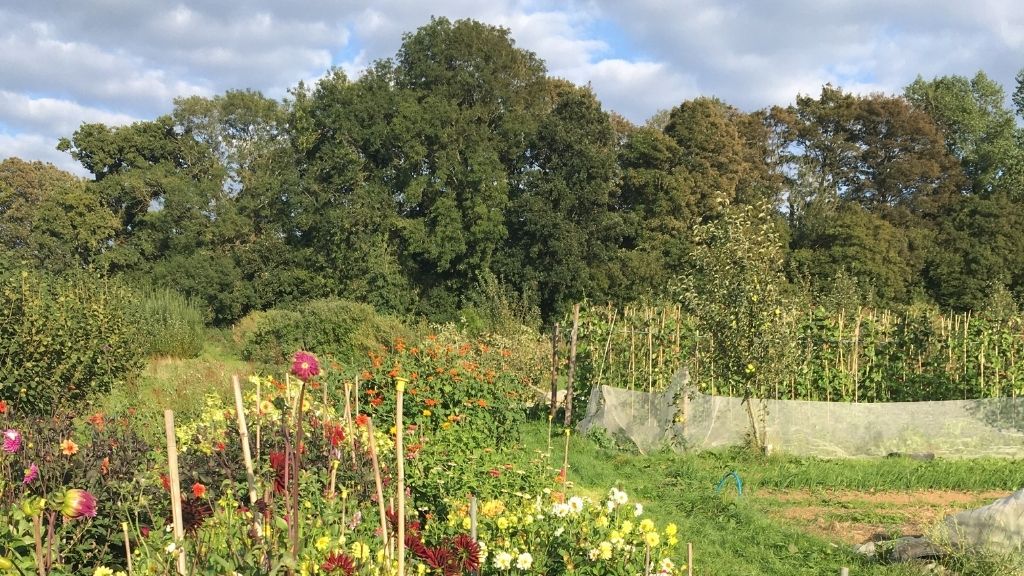Forest Gardens at Schumacher College
Dartington Trust is dedicated to providing solutions toward farming problems facing our societies. With increasing global populations, alternative methods of farming are required to combat the flaws in conventional farming systems. On our estate, we utilise agroforestry practices to improve our soil and provide a variety of natural resources.
Agroforestry involves planting both trees and crops on the same plot of land. This provides a multitude of benefits by creating new eco systems, resilient production systems and cycles of regenerative farming. Our work in Agroforestry has led us to host The Agroforestry Research Trust and garnered recognition from the Soil Association.
Dartington Trust wants to inspire a passion and interest in agriculture, providing a place to experience the benefits of alternative farming. Emilia, one of our horticultural interns on the Schumacher College Growing Team, has written a response on her time working with the forest gardens on campus….

The Schumacher College gardens are home to two forest gardens on the Dartington estate, the first is smaller and established eight years ago and the second is larger and established four years ago.
I hear some of you ask “What is a Forest Garden?”
A Forest Garden is an edible garden space designed using the systems found in woodland ecosystems. All potential growing spaces are utilised by layering fruit and nut trees, shrubs, groundcover plants, herbs, vines and tubers/roots. Most plants are perennial, meaning they will live for many years once planted and causing less soil disturbance than an annual food growing system.
I have been fascinated with Forest Gardens for many years, as they are inspired by how plants exist outside of annual growing systems, or conventional farming practices. By exploring how to assist and enrich the relationships that plants develop between each other we can work towards holistic and regenerative food systems.
An example of these relationships is trees shedding leaves that create mulch and soil for shade-loving shrubs or herbs living below its canopy whilst vines can climb up the support provided by the trees trunks. These plants have developed to co-exist in a shared space that provides benefits from each other’s qualities.
Not only can a Forest Garden present a low-maintenance, sustainable food-growing system, these spaces can inspire humans to work and collaborate together more effectively.
During our Horticultural Internship at Schumacher College, we are encouraged to take on a project to work with. I was delighted to adopt the 1-acre Forest Garden in Henri’s Field for my focussed project, which was designed and created by Ella Sparks four years ago.
In the Forest Garden there are salad and edible greens beds, tubers, an abundance of soft fruit bushes, a cider-apple orchard, a herbal tea garden, edible flowers and many medicinal plants. I am enjoying the learning experience and excited to share what I am learning with volunteers and the students on our Practical Residence in Sustainable Horticulture.
